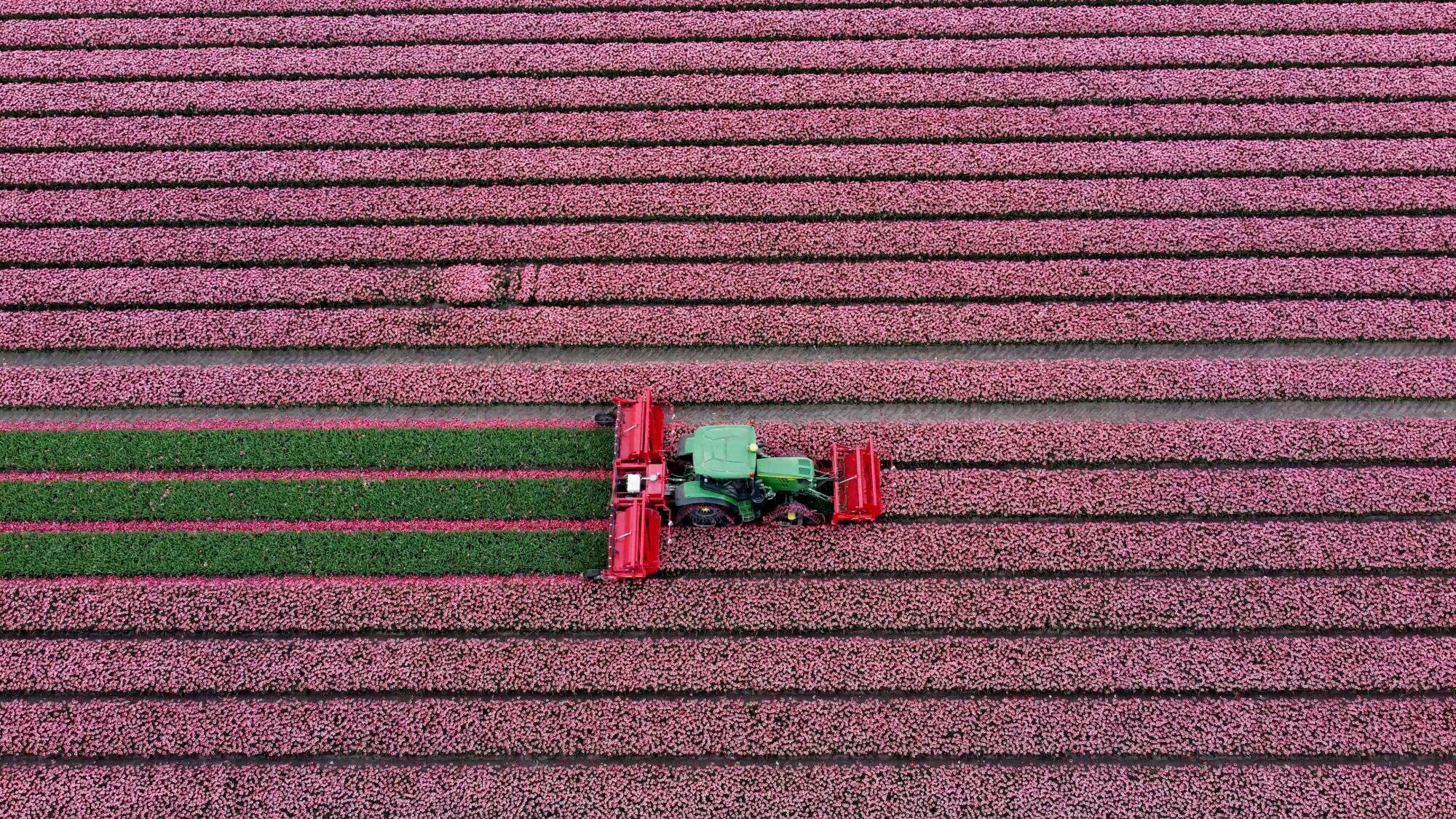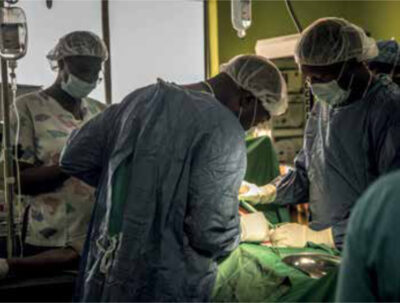Important notice
Please note that the images, figures, and tables for this Perspective have not been added yet. We are actively working to digitise and include these materials from our past magazines.
Main content
Interview with Bart Waalewijn
AMSTERDAM CENTRAL STATION. It’s 16.00 hours and in exactly 1 hour and 17 minutes Bart Waalewijn will leave on a train for Brussels to catch a flight (probably the cheapest flight he could find) to Sierra Leone, where he will work at Masanga hospital (www.masangahospital.org). Who is Bart Waalewijn and why would anyone go to Sierra Leone as it is in the midst of an Ebola epidemic?
Bart, can you tell us a bit more about yourself? Who is Bart Waalewijn?
Sure. In a nutshell I am a young medical doctor in tropical medicine and international health. I am married to Pauline and last year I became a father.
Why are you going to Sierra Leone?
This trip is a follow-up on my previous visit in December 2014. Since late 2013 I have been posted in a district hospital in Sierra Leone and lived there with my family. A facility with one hundred beds, an emergency ward, 500 deliveries and 1200 operations a year. Due to the Ebola crisis our hospital was forced to reduce its activities. Fortunately the whole situation is improving and we expect to resume normal activities soon. I will join my colleague Jurre van Kesteren who is already there.
What will you be doing there?
Our mission in short is to safely reopen the hospital, with an upgraded screening and triage for those Ebola cases still left in the country. Also I am checking the status of the hospital. With support we are currently improving it with projects for solar energy, water supply and a protective fence. I will explore what is the best way to continue our surgical training programme. This Norwegian initiative CapaCare aims at improving the quality and quantity of surgically trained health care workers in the districts. Unfortunately this programme and its trainees have also been hit tremendously by the Ebola outbreak. Finally we will lobby at the Ministry of Health and Sanitation to be on the national grid for the post-Ebola recovery plan. The country will soon present these plans to rebuild its infrastructure, and we would like to be part of this national approach.
Why the choice for tropical medicine and international health?
As a young boy I grew up in Africa, so I guess my interest is partly based on this experience. As I started medical school in Utrecht I also tried to follow elective courses in tropical medicine. It’s such a different and often courageous approach to medicine. It is holistic, very broad but still focused on the actual needs in low-resource settings. There are several diseases we hardly see anymore in the West. The need to think ahead, to be creative is really stimulating. For me it’s rewarding to play my part in the development of low-resource settings. Of course the adventure of a totally different culture, amazing nature etcetera has been part of this choice. I remember the theme of a symposium with the title: adventurer, idealist or missionary? For me I think it is a mixture.
Greatest inspiration?
Ha, this is a difficult one as I can think of many inspiring people. I can think of Nelson Mandela, Albert Schweitzer and others, but mostly for me this would be Jesus. The example he set in the way how one can live, taking care of others and at the same time being very clear about injustice etcetera. We live in a world where there are huge challenges and tensions, Jesus provides tools which even apply for us now, and that’s inspiring.
With all that we know, or actually do not know yet about Ebola, are you afraid?
Well, the fact that we were evacuated early in August and the huge media storm last year caused a bit of stress. During the early weeks of the epidemic we were hardly prepared, but had to deal with some suspected cases. Looking back I feel relieved that those cases turned out to be negative; things could have been totally different. When we returned to Sierra Leone in December the insurance part became a problem, of course at that time we were very alert. After my experience in December, this trip should not be too stressful. I received a training last year and with certain common sense precautions I don’t think it’s too dangerous to go there. But of course, any fever or illness will cause stress: is this Ebola? The bad news is that, while the area around Masanga hospital was free of Ebola until recently, in January 2015 there was a confirmed case in the village. I just hope that this one case will remain the only one.
If you could say anything about Ebola, what would it be?
To be honest, I am a little bit tired of Ebola. It’s a lesson for us and the whole world always to be alert. Fragile states and weak health systems have become, once again, more visible due to this Ebola crisis. General infection and prevention methods remain the cornerstone for systems to function well and that is true for Ebola, but also for HIV, hepatitis, diarrhoea and many other diseases!
An important message to upcoming doctors in tropical medicine and international health?
Be prepared to think out of the box and be flexible. There will be times when you feel exhausted or drained, and think: does this all make sense? Don’t let these frustrations take over, the overall impact you can make and the stimulating moments you will have are simply too important. The Dutch training in tropical medicine and international health is unique in the world, and many times I have seen jealous doctors from other countries asking me about this training. Let us do the things we are good at, and enjoy what is coming!


















































